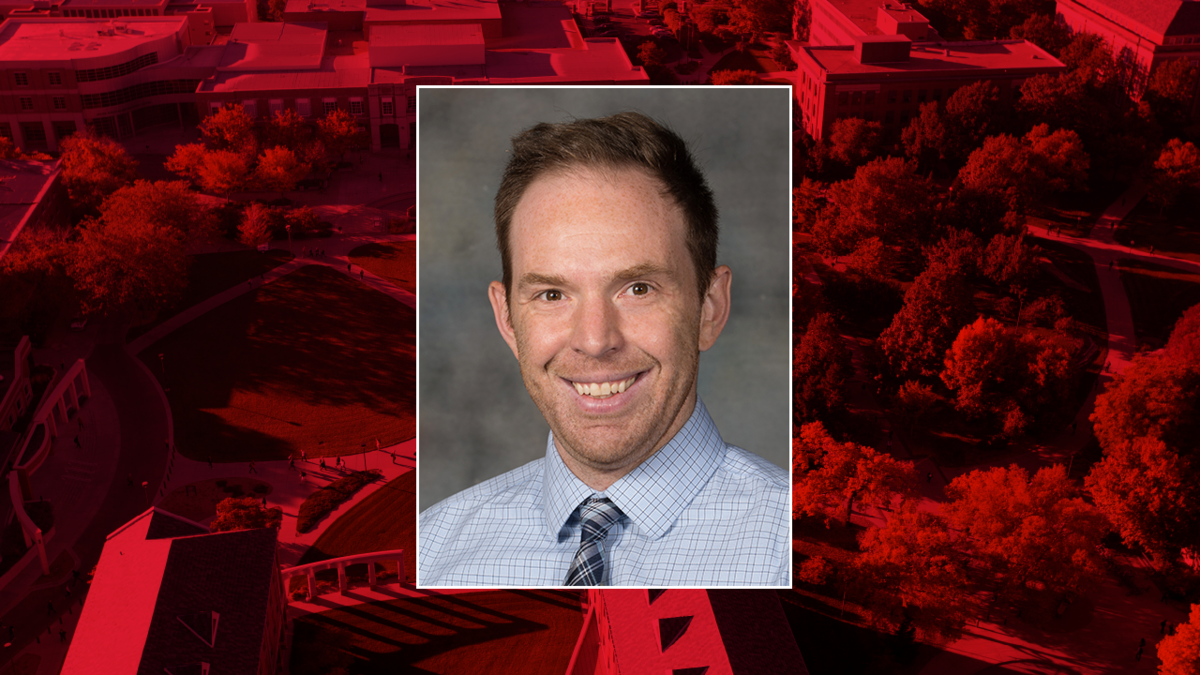
As researchers strive to develop and expand affirming prevention and intervention efforts for sexual and gender minority youth, an ongoing project’s preliminary findings are bringing into focus the impacts of dating violence and problem drinking — and the strengths of LGBTQ+ youth.
Katie Edwards, associate professor, CYFS and educational psychology, and director of the Interpersonal Violence Research Laboratory, is working with Heather Littleton, associate professor and director of research operations at the Lyda Hill Institute for Human Resilience at the University of Colorado–Colorado Springs, to develop an online initiative for LGBTQ+ youth ages 15 to 18 to prevent dating violence and alcohol use through positive identity development and important life skills.
The program, “Promoting Resilient Youth with Strong Hearts and Minds,” is the first culturally adapted and affirming program designed specifically for sexual and gender minority youth to prevent dating violence and alcohol use. Researchers are collaborating with a youth advisory board to create the program.
For sexual minority youth, dating violence and problem drinking are frequently intertwined, and often lead to depression and even suicide — results “likely rooted in experiences of minority stress, such as experiences of discrimination and rejection,” Edwards said.
As part of the developmental phase of PRYSHM, social media was used recently to recruit more than 700 LGBTQ+ youth throughout the U.S. who had dated during the previous three months to complete online surveys about their dating and alcohol experiences.
Researchers found that while LGBTQ+ teens drink alcohol and experience dating violence at disproportionately higher rates than heterosexual, cisgender teens — a majority choose not to drink and engage in healthy relationship behaviors.
Surveys found LGBTQ+ teens tended to overestimate the level of alcohol consumption by their LGBTQ+ peers. The results shed light on the influence of social norms and misperceptions among sexual minority teens.
Among surveyed youth, 43% reported drinking during the past three months, but estimated that 85% of LGBTQ+ youth peers drank in the past three months. Additionally, researchers found that misperceptions of alcohol norms and alcohol use predicted various forms of dating violence — physical, sexual, isolation, cyber, intimidation, social control and sexual minority-specific.
“We wanted to share with LGBTQ+ youth more of the good news, which is that most LGBTQ+ youth are not drinking or engaging in abusive behaviors, and that most are engaging in healthy relationship behaviors,” Edwards said.
Because social norms are particularly influential during adolescence, Edwards said, spreading the word about good, healthy behavior is crucial.
“Research shows that when asked about how much they believe their friends are drinking, college students far overestimate how much their peers are actually drinking,” Edwards said. “When you think everyone around you is drinking, you tend to think you should be drinking, too. The same goes for sex — if you think everyone around you is having sex, you’re more likely to engage in risky sexual behavior.”
Edwards presented the survey findings June 28 at the Research Society on Alcoholism 2022 meeting in Orlando, Florida. She noted that this is the first study to examine misperceptions of social norms among LGBTQ+ youth specifically.
The research team will make some program refinements based on feedback from LGBTQ+ youth before rolling out the larger pilot randomized control trial to 200 youth nationwide. Participants will be recruited on social media, with advertisements targeting LGBTQ+ youth across the country, particularly in remote or rural areas.
“In rural communities, where LGBTQ+ resources are scarce, there is a dire need for programs that provide youth with resources and support,” Edwards said. “I think LGBTQ+ youth are going to be excited about this program. For some, it will be the first time connecting openly with LGBTQ+ youth and adults.”
Edwards and her team recently completed a pilot program with 14 youth participants to gather feedback for program adjustments. She said the youth liked the program, found it relevant to their lives and reported positive impacts.
Once finalized, PRYSHM will include several telehealth sessions led by LGBTQ+ facilitators, which will be developed with help from LGBTQ+ youth and experts in the field. The program will feature a social media support network, as well as games, videos, breakout rooms and other experiential activities designed to help participants to develop skills to build resilience and reduce negative outcomes.
The project is funded through the National Institutes of Health’s National Institute on Alcohol Abuse and Alcoholism. Along with Edwards and Littleton, project collaborators at the University of Nebraska–Lincoln include Alex Farquhar-Leicester, doctoral student in counseling psychology; and Joseph Gardella, postdoctoral scholar. Clayton Neighbors at the University of Houston is a co-investigator.
Edwards said the LGBTQ+ community’s strength and resilience is at the core of the program.
“We want to give youth hope for the future, so they know things will get better and that there are communities that will accept them,” she said. “Ultimately, if we find this program is working, we can expand it to reach countless LGBTQ+ youth across the country.”







